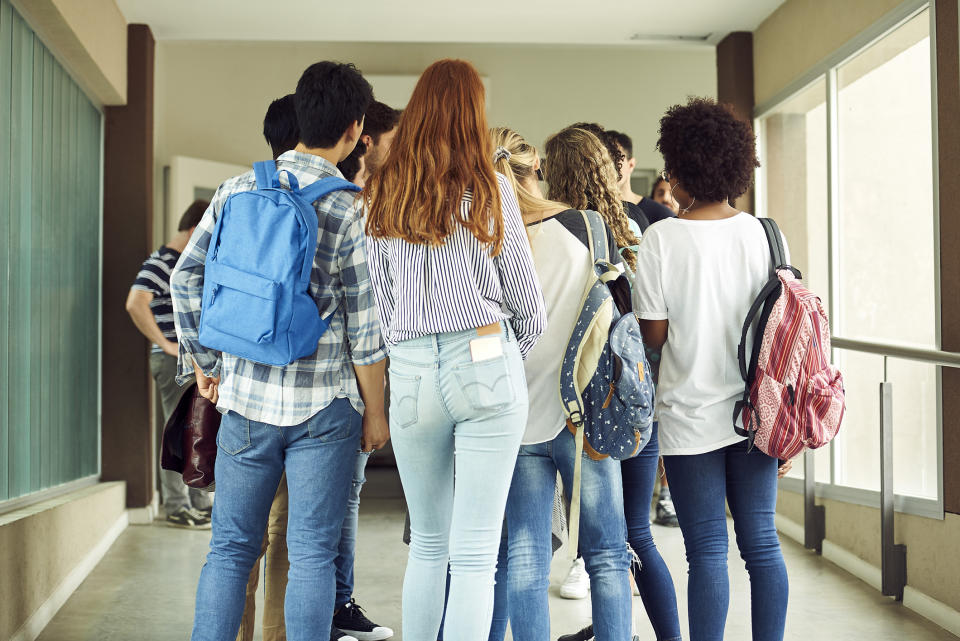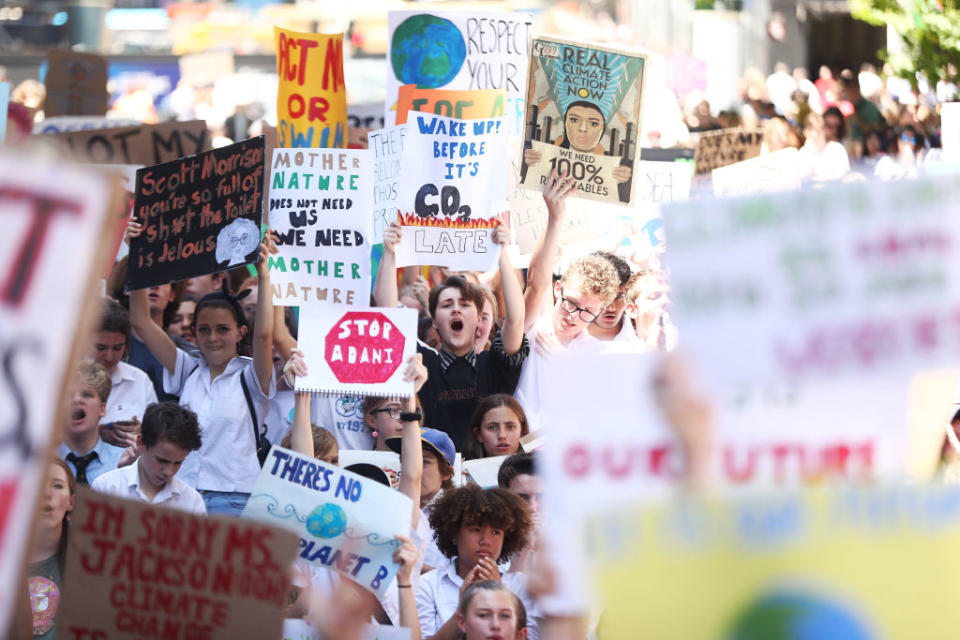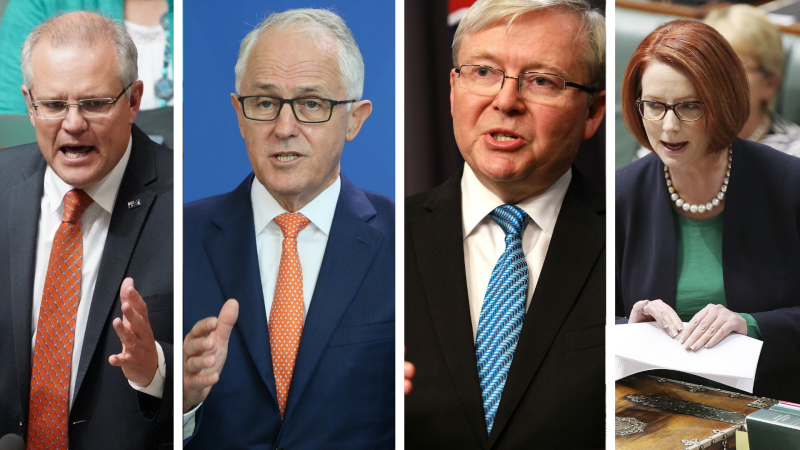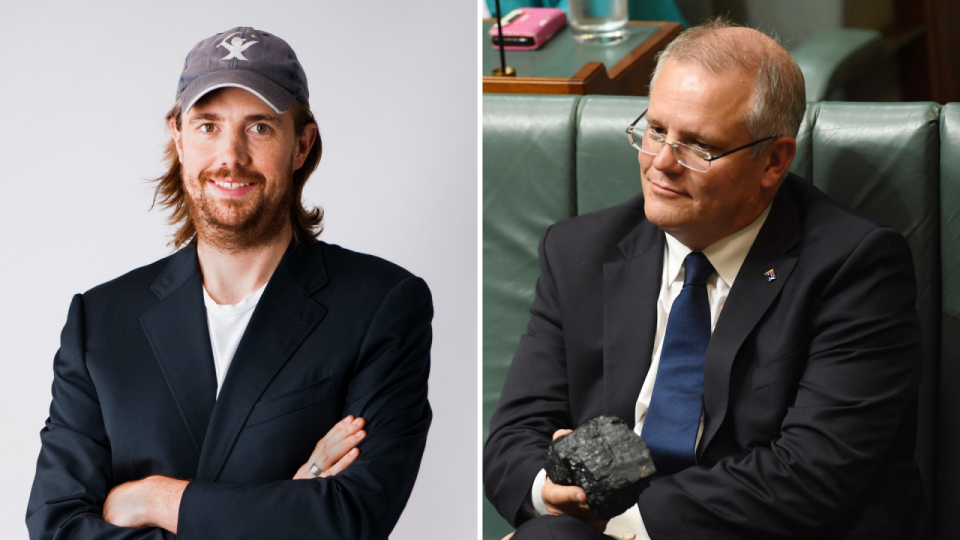Inside the minds of Aussie high school students: this generation isn't happy with the government

Australia’s younger generations are often accused for being glued to their screens.
It’s not untrue – students spend nearly 2 hours (116 minutes) on social media every day, according to a new NAB survey of more than 300 Australian school students from year 10 to 12.
But it doesn’t mean they’re lazy or unaware of political affairs. Just over 40 per cent of surveyed Aussie students already have part-time jobs, and another four in ten said they didn’t have one but they wanted one.
“What comes through very clearly is our country is in good hands as the next generation of workers, parents, business owners and community leaders, start to make their mark,” said NAB head of behavioural and industry economics Dean Pearson.

They’ve also got some fire in their belly: four in 10 students said they would love to start their own business while at school if they knew how to, and 50 per cent said they would like to either run their own business or eventually run their own business after they left school.
“This is also an entrepreneurial generation, perhaps by default, as the pace of change necessitates them taking greater control of their careers and lives.”
The surveyed high school students indicated that if they were to start a business, they would choose not-for-profit, start an online store, become a social media influencer, do babysitting, or be a photographer.
If they work for an employer, an average of 72 per cent of students want an employer that “has a positive impact on the world”, although this was higher with girls (77 per cent) than with boys (62 per cent).
Passion is also a major driver, with 2 in 3 students wanting to feel passionate about work, while fame and recognition isn’t something that appeals strongly at all (7 per cent).
Australian youth are also demonstrating they’re cognisant of domestic and global challenges, with students identifying war, terrorism, political tension and cost of living as the greatest challenges facing societies around the world.
The next set of major challenges included climate change, the destruction of nature, racial, gender and sexual discrimination, and housing affordability.
What do they want?
In the first instance, they want to feel heard by the Government. When asked if they believe their voice is heard outside of their family, only 32 per cent said the domestic government heard their concerns.
So what would they do if they were prime minister for a day?
“The response was overwhelming,” NAB said.
What’s clear is that students have a sense of their values, and care about equality and justice. The high school students said they would have a more racially and gender-diverse parliament; a new department to protect minority and discriminated groups; and fixed terms for prime ministers to mitigate instability.

Not only that, but school students would improve training for mental health specialists in assisting LGBTQIA individuals, strengthen enforcement of anti-hate and equal pay laws, prevent live animal exports, strengthen protection of ecosystems and habitats, more greatly acknowledge indigenous rights, and take better care of the homeless.
They also want to feel more empowered and have more opportunities, with students saying they would like to see programs to help them create their own businesses, better education programs about life after school, free tertiary education, have the voting age lowered to 16, and to have a temporary ban on buying a house you’re not going to live in.
Students also want strengthened defence capabilities and border protection, universal wifi access, stronger ties with other countries to improve global connectivity, and tougher action on climate change or carbon emissions, more incentives for businesses to switch to renewable energy, and a reduction in council rates.

The insights are something for the nation’s leaders to consider as these students draw nearer to voting age and the “revolving door” of Australian prime ministers continues to turn.
Make your money work with Yahoo Finance’s daily newsletter. Sign up here and stay on top of the latest money, news and tech news.
Read next: Don’t fall for the spin – Scott Morrison’s budget surplus is no certainty
Read next: Chart: The industries with the most union members
Read next: JP Morgan on the 4 factors that will shape the Aussie economy in 2019

 Yahoo Finance
Yahoo Finance 
